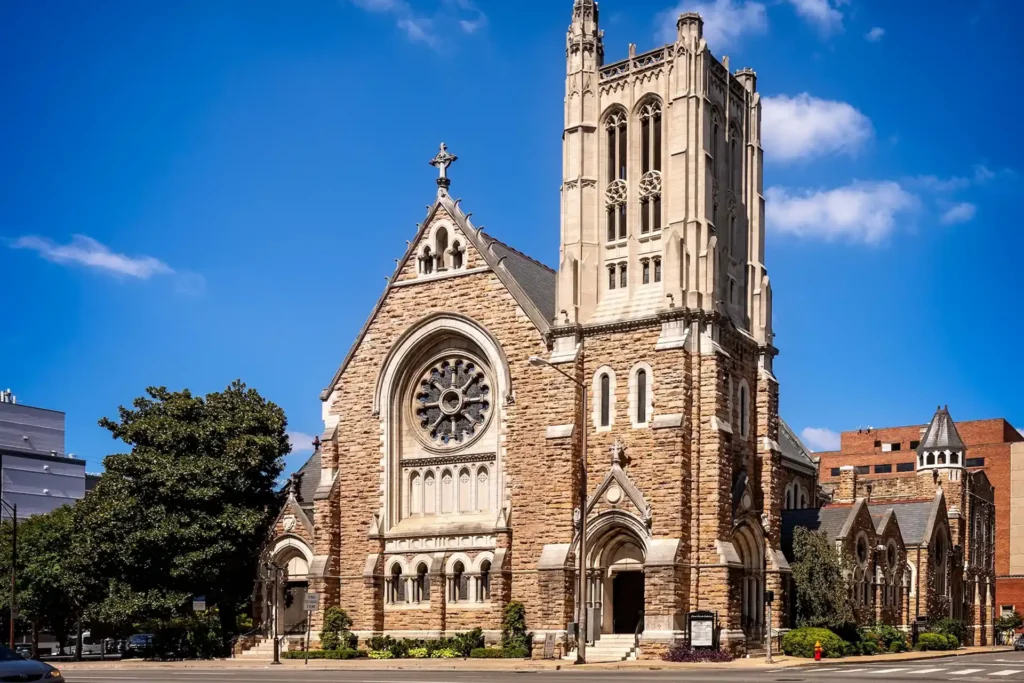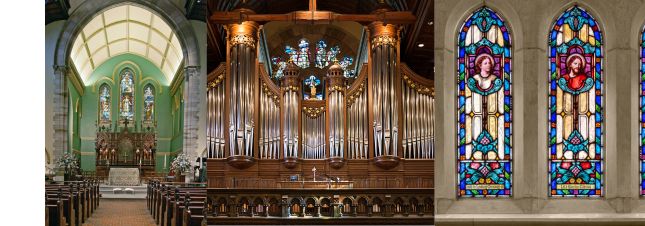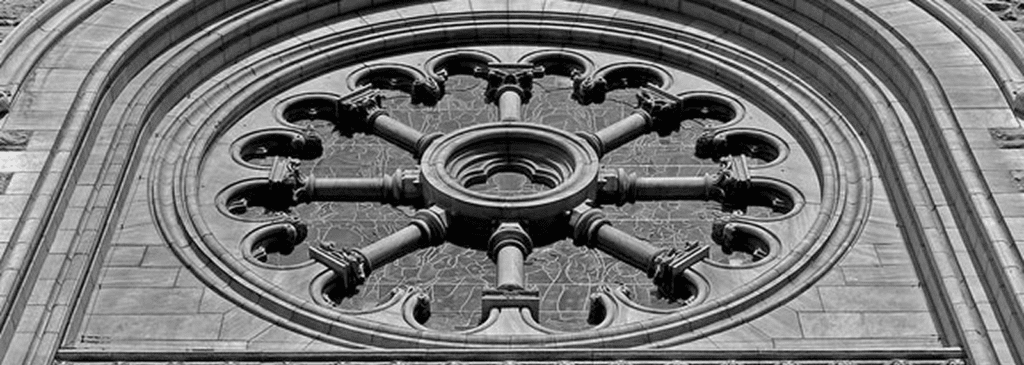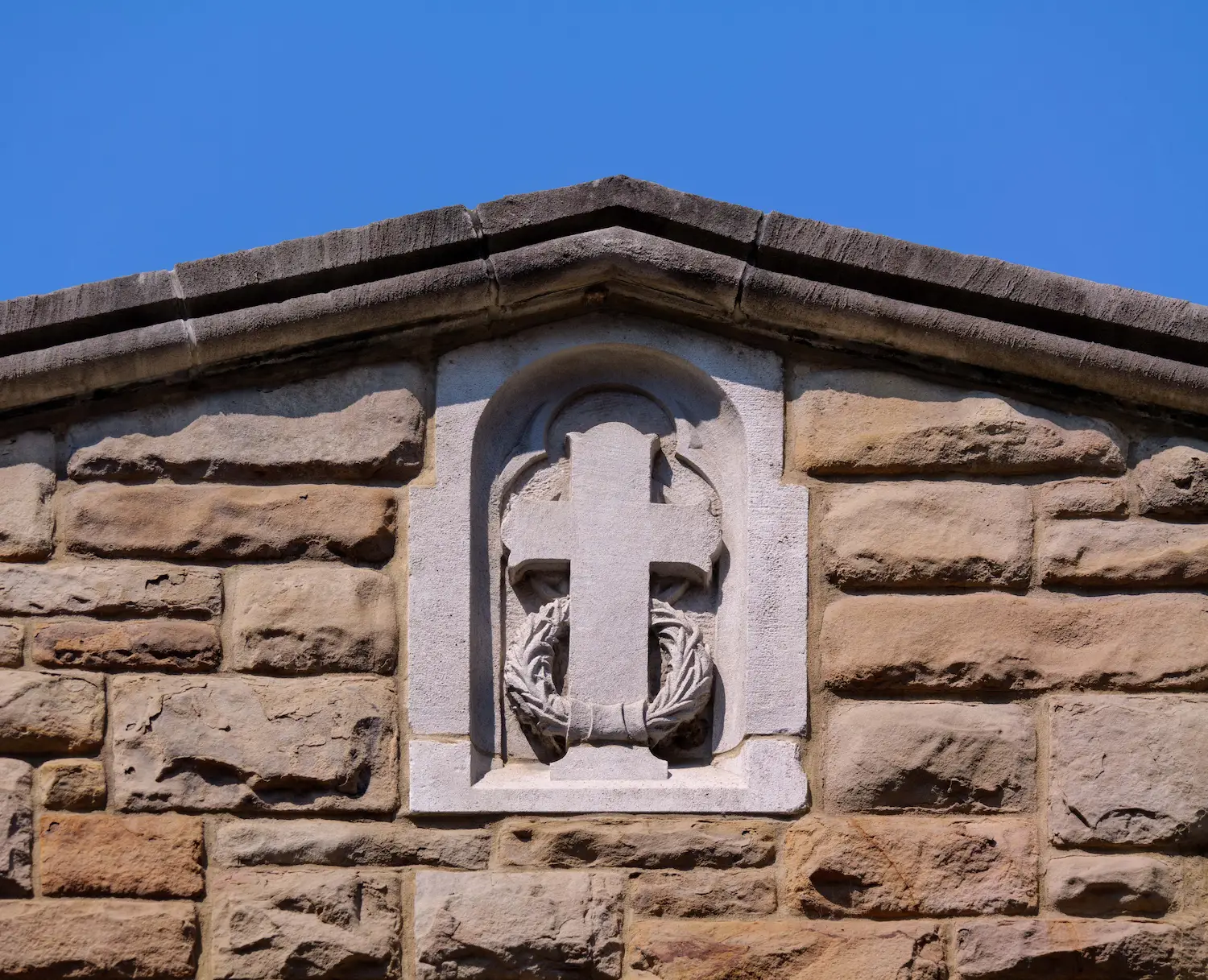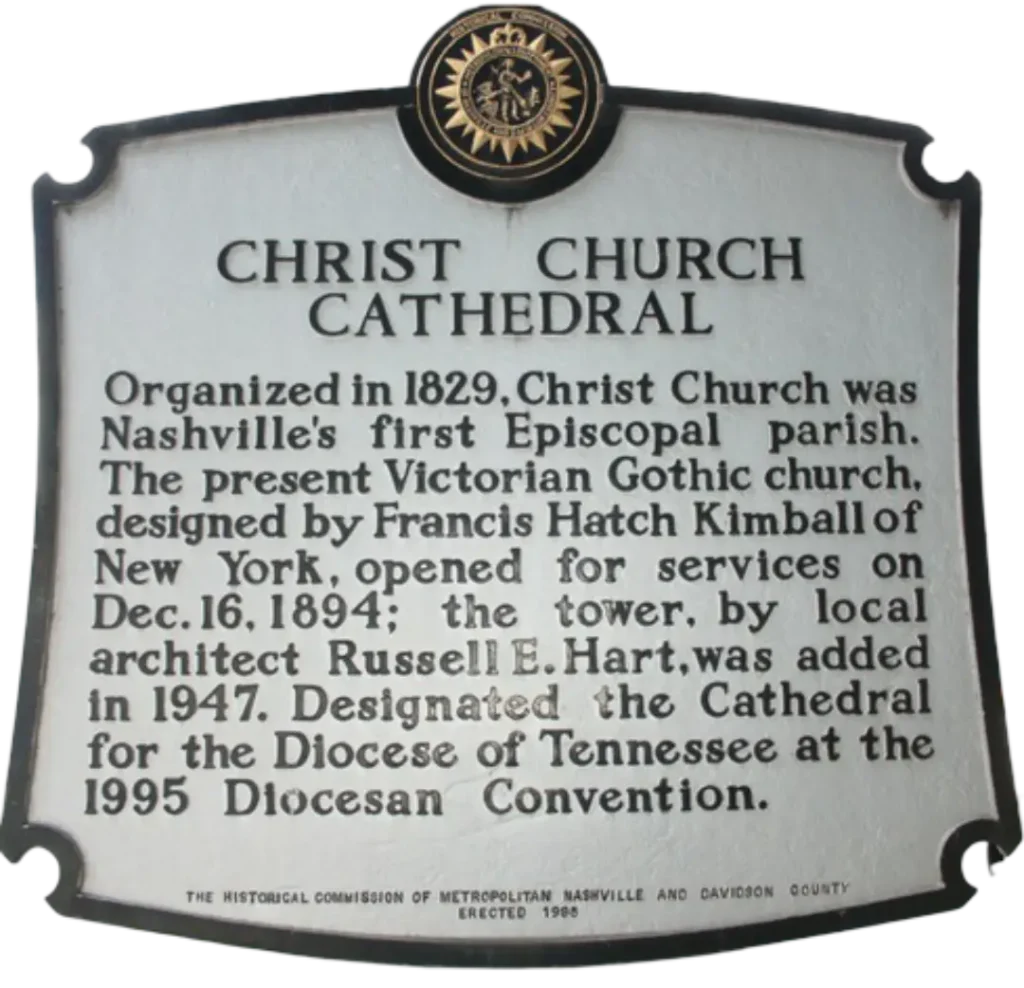
Christ Church and the Diocese of Tennessee have grown in tandem for almost 200 years, but it is only in the last 30 years that Christ Church took on the role of Cathedral for the diocese. The Diocese of Tennessee is now presided over by its 11th bishop, the Right Reverend John C. Bauerschmidt. You can read Bishop John’s bio here.
Christ Church History 1829-1929
History
In June 1829, a congregation in Nashville elected the first Vestry of Christ Church and a little over a year later laid the cornerstone of the first Episcopal church structure in Tennessee. By 1837, Christ Church parish had grown to 72 members. Christ Church was fortunate to escape occupation by Federal troops during the Civil War and by 1867 had 145 communicants on its rolls. Construction began in 1889 on the current structure at 9th Avenue and Broadway, a building now listed in the National Register of Historic Places. It opened its doors for worship in December 1894, the first Eucharist celebrated there on Christmas Day of that year.
Christ Church has a history characterized by internal stability and a commitment to fostering growth around the diocese and in the Episcopal Church broadly. Of the nine rectors leading the parish between 1894 and 1940, eight later become bishops of the Church. By 1960, Christ Church had spawned 13 mission churches in the diocese, an average of one per decade. Five of those churches are still flourishing. Over the last 100 years, only three organist-choirmasters have served the parish, providing unusual continuity that has fostered a strong musical tradition. In 1969, the parish elected its first woman to the Vestry and in 1985, employed its first female priest as assistant rector.
Over the last 25 years, Christ Church has almost tripled its rolls, and is currently home to more than 2,000 communicants.
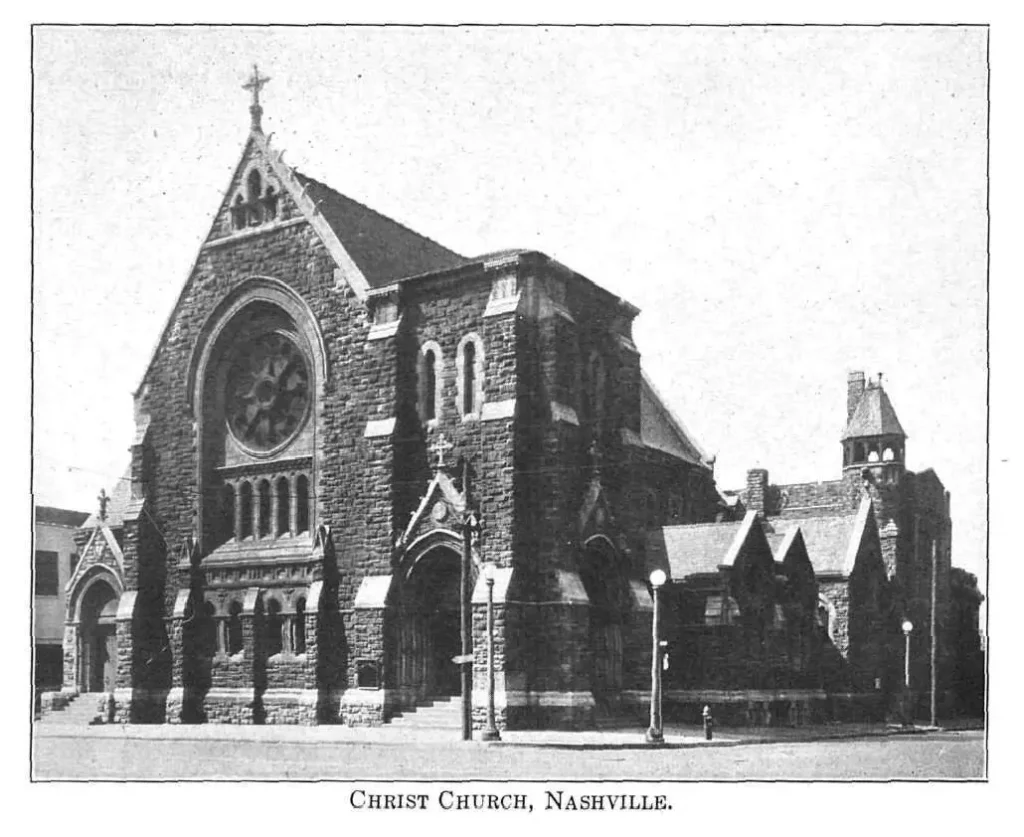
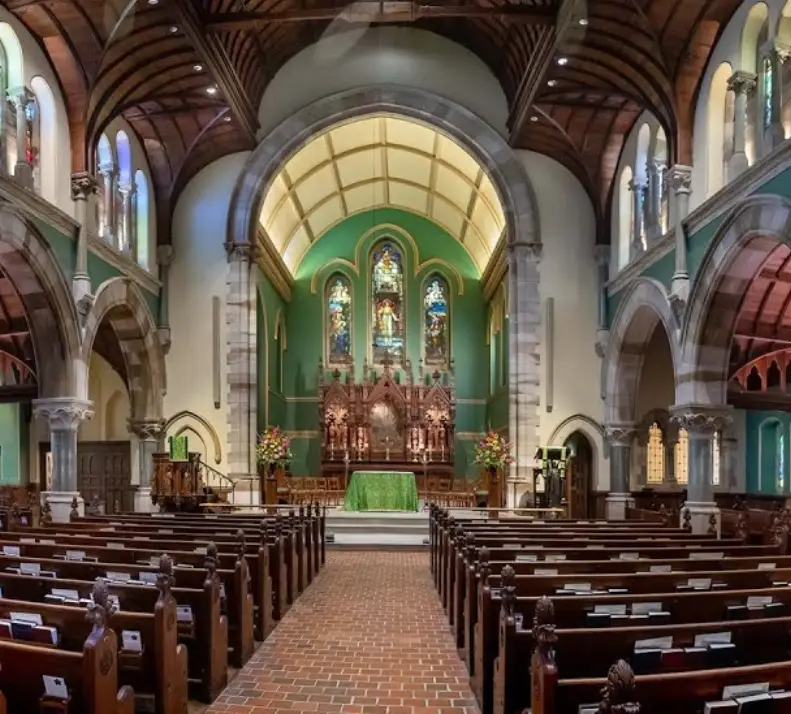
In 1984, the Diocese of Tennessee became more geographically circumscribed when East and West Tennessee became independent dioceses. Long considered the mother church of Tennessee, Christ Church officially became the Cathedral of the Diocese of Tennessee in 1997. Christ Church parish had always been a sturdy supporting partner in the diocese, but in the role of Cathedral, it strives to become a model for the diocese in liturgy, music, outreach, education, spirituality, and collaboration.
The Diocese of Tennessee is now presided over by her 11th bishop, the Right Reverend John C. Bauerschmidt. It consists of 50 parishes and missions: urban and rural, small and large. About 16,000 communicants comprise an ethnically, theologically, and economically diverse body.
Read more about the history of the national Episcopal Church here.
Isaac Ministry History
The Isaac Ministry uncovers Christ Church’s ties to slavery, segregation, and racial injustice from its founding through the Jim Crow era. Enslaved labor built the first sanctuary, most early leaders were slaveholders, and Black worshippers were segregated, even as people like Mary Jane and Isaac, baptized in 1842, became part of the parish story. These histories challenge us to face the past and seek a more just future.
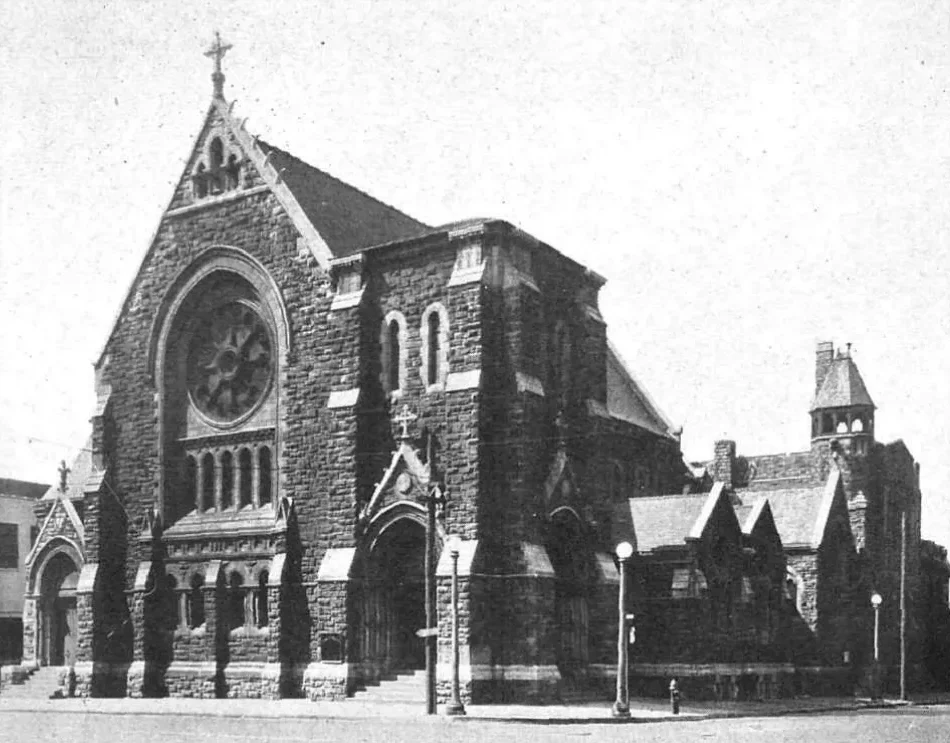
Christ Church History 1829-1929
Annual Report
Each year we publish an Annual Report that can tell you much more about who we are and what we do!
Tours
You are welcome to take a tour of our nave (sanctuary) and chapel! Tours are offered on most Saturdays at 10 a.m. Please check our weekly programs calendar here to confirm tours for a particular Saturday (in case of an event conflict). We also do tours at other times for groups of five or more. Please contact Melanie Percival, our Parish Coordinator, to schedule a group tour.
